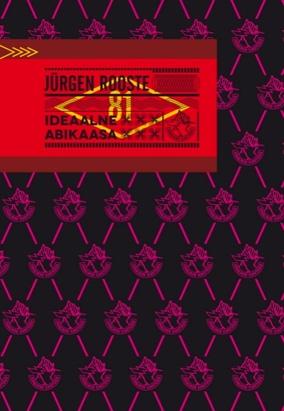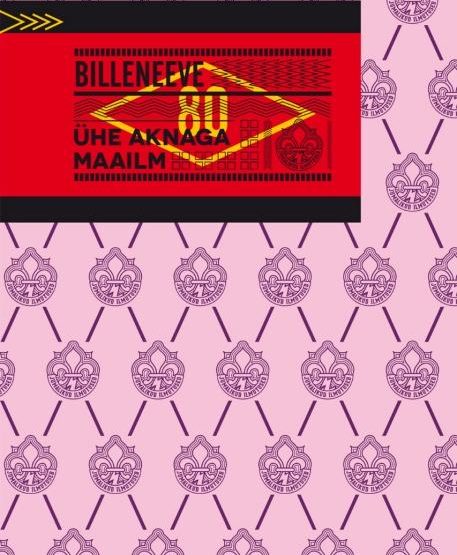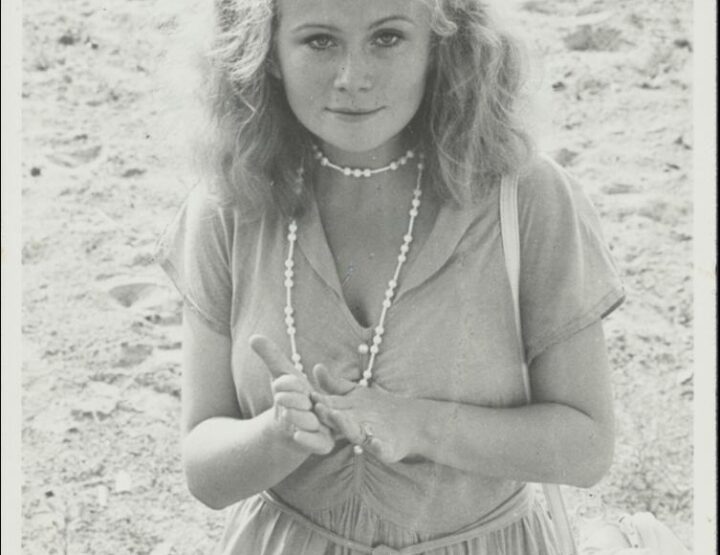Jürgen Rooste, Ideaalne abikaasa (The Ideal Husband)
Saarde-Pärnu, Ji, 2015, 107 pp
ISBN: 9789949519552
Jürgen Rooste (b 1979) is one of Estonia’s “wildest” writers today, right behind Valdur Mikita. He is simultaneously the country’s loudest, sincerest, and most exuberant and (social-) critical contemporary poet. Rooste has released 15 poetry collections and several children’s books, has co-authored literary textbooks, has published a wealth of reviews of literature and cultural events, and has worked as an editor. He has feverishly organised poetry readings, festivals, and events to acquaint Estonian literature both at home and abroad. Rooste often writes opinion pieces, sometimes in poetic form. He is a remarkable performer, and several of his poems are indeed meant more for live presentation. He frequently takes the stage together with musicians and, what’s more, is just as convincing with a big jazz band as he is with solo accompaniment – his texts may be bluesy or meant to be rapped. In short, Jürgen Rooste is an extremely productive and wide-ranging author.
The Ideal Husband is composed of an impressive spectrum of texts, but love poems form its axis. Readers met the poet’s sweetheart Sveta in his 2014 collection Suur sume, suur tume (Great Dusk, Great Dark), which hints at the delicacy and fragility of their fresh meeting and the process of falling in love. In The Ideal Husband, Rooste declares frankly: “the centre of this world is / you”. He literally idolises his beloved: in the cycle “Jürgen’s Gospel”, the poet becomes a mere predecessor to his girlfriend, a “baptiser and healer”, whose task is to proclaim and “cast verses / about the girl of light”. His love is so great, so encompassing and overwhelming that he so much as starts to suspect “that maybe this love // has even replaced my art my poetry / that which has been most important / to me”.
Nevertheless, that doesn’t quite seem to be the case. Rooste is still (like in his best books) simultaneously sincere and sarcastic, serious and playful. On the one hand, he can exclaim that “all Estonian culture’s just / Juhan Liiv’s coat / — / threadbare and worn / a jacket that’s of no use / at all”; on the other, he can prowl the city animal-like and bare his teeth: “this animal’s called / the social poet / and he smells // the proper bourgeois’ fear”. One of Rooste’s most important tools is his long-lived childlike nature, his occasionally downright naiveness, which gives the texts a light and playful tone and prevents the tone from turning bitter. The Ideal Husband additionally contains good old ordinary Bukowski-like poesy: almost sleeping with his ex-wife (“almost”, because his daughter walks in on them); making pancakes in a bachelor pad and turning the kitchen into a warzone; boozing with his sweetheart’s father, which allows language-barriers to be overcome; etc. The images are humorous and not excessively critical – things are described just the way they are at that moment. Worthy of special note is the author’s use of language, which is free and fluid to the core. Rooste’s language has evolved into his own space where he plays with words and even letters, and at the same time, it is all entirely natural and compelling.
Has the formerly “ordinary Estonian idiot” (the title of Rooste’s 2008 poetry collection, tavaline eesti idioot) finally grown into an “ideal husband”? Apparently not – at least the poet sees himself as being anything but ideal. And can any one marriage, any one life even be ideal in the first place? What remains crucial is the endeavour – the desire to be a smidgen better. You just need to love as well as you can, however it may turn out, and that love will cast a little ray of light into our dreary everyday lives.
Carolina Pihelgas (1986) is a poet and translator. She has published four poetry collections and translated poems into Estonian from Spanish, English, Greek and Norwegian. Pihelgas became the editor of the literary magazine Värske Rõhk in 2011.




